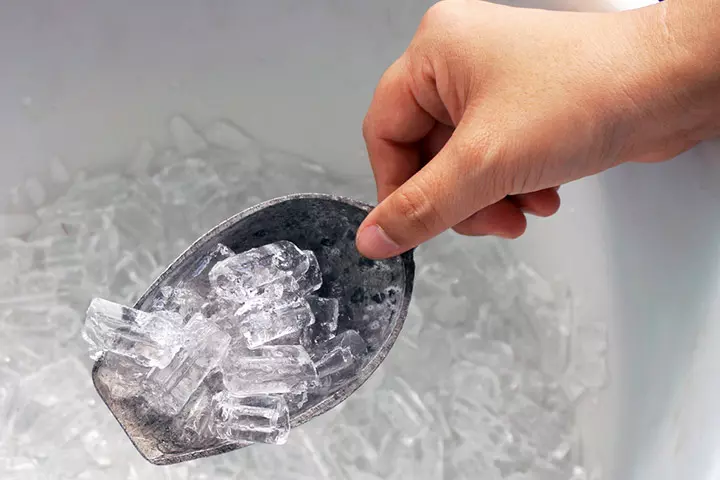

Image: Shutterstock
Motherhood is a blessing that empowers a woman to undergo a multitude of changes (physical and emotional), so that she becomes the primary caregiver and nurturer for her child.

However, it can also bring about a number of challenges and difficulties. Putting a sudden stop to breastfeeding (sudden weaning) is one of them, and it can be a stressful situation for both the mother and the baby (1).
Usually, the process of weaning is gradual, which depends upon the age and the readiness of the child. But sudden weaning could happen due to various reasons. Sometimes the mother may be under medication that prevents her from breastfeeding or she could be suffering an unfortunate bereavement of her baby. In such situations, it may become necessary to stop her milk flow to avoid any blockage, infection or further complications.
So, in what ways can we stop the flow of breastmilk? How can we manage the pain and discomfort associated with sudden weaning?
Here we give you some tips and pointers related to sudden weaning and managing its side effects.
1. Using Medication With Oestrogen
Using medication with high oestrogen content to suppress milk flow was a common practice earlier, but now it isn’t favoured much due to the negative side effects (2).
Alternatively, combination birth control pills or decongestion medication containing antihistamines (used during a cold and cough) have been found to be useful in controlling milk secretions.
2. Breast Binding
Flattening the breasts using constrictive materials to prevent milk flow is another method that isn’t popular anymore. It also causes a lot of discomfort when the breasts are engorged and can lead to plugged milk ducts and infections like mastitis (3). Hence, let your breasts feel free and loose.
3. Not Limiting Fluid Intake
Drinking excess water to produce more breastmilk is a myth. Hence, do not dehydrate yourself, believing that restricting water or fluids will dry up your milk. Additionally, it can actually be harmful to your body.
4. Consuming Sage
Sage is an herb that is naturally high in oestrogen and therefore is a popular home remedy for drying up breastmilk. Sage can be consumed in various ways – as part of your regular diet, as tea, or as a tincture.
5. Using Cabbage Leaves
Cabbage leaves that are washed, dried, and cooled in a refrigerator act as a very soothing antidote to engorged and inflamed breasts. It is said to be rich in sulphur that helps to reduce milk supply, thereby lessening swelling and pain.
6. Expressing Small Amounts Of Milk
The amount of milk your body makes is dependent on the quantity of milk expressed or fed. So, expressing little milk or just enough to relieve your painful breasts, may help in gradually drying up your breasts in a natural way.
7. Applying Cold Compresses
Cold compress, ice packs, ice wrapped in a cloth, and bags of frozen veggies have been found to be very helpful in relieving the symptoms of pain and inflammation when your breasts are full.
8. Medicines For Pain Relief
You can take medication like paracetamol or anti-inflammatory drugs like ibuprofen, which reduce swelling and may give your painful breasts some relief.
9. Give Yourself Some Time
Coping with sudden weaning is different for everyone. For some, it may take just a couple of days whereas others may start feeling better only after a few weeks. So, it is important not to stress over the matter and give your breasts the necessary time to relax and recover.
10. Take Help
If you feel any difficulty in weaning, do not hesitate to consult doctors and breastfeeding specialists. There are dedicated teams of medical and organisational staff who can assist you with the necessary information and guidance to help you in the process of sudden weaning.
The decision to stop breastfeeding can be physically and emotionally distressing. However, a positive approach and due support can make the situation easier to deal with. Hope the above information helps!
Community Experiences
Join the conversation and become a part of our nurturing community! Share your stories, experiences, and insights to connect with fellow parents.





















